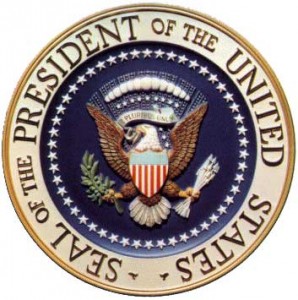Types of Capitalism
July 7th, 2012 // 8:52 pm @ Oliver DeMille
 There are two major types of economies: market and command.
There are two major types of economies: market and command.
Within these two branches there are a number of subtypes, including various command-style economies such as socialism, communism, fascism, collectivism, authoritarianism and totalitarianism.
The market-economy subgroups are sometimes more confusing to people from free societies, because most of us have been trained to evaluate politico-economic issues in binary mode where we narrow any debate down to only two sides (e.g. socialist or capitalist, democratic or totalitarian, good or evil, free or not free, etc.).
That said, we live in an era where the various subtypes of market economics are in conflict.
During the Cold War the world was divided between two great camps, with market economies of all types firmly allied against all command economies, but in the post Cold War and post 9/11 world this has dramatically changed.
There are forces supporting each of the various subtypes of market economy, and often these are pitted against each other in ways unthinkable before 1989.
Differentiating between these subtypes is important for anyone who wants to accurately understand what it happening in today’s world:
- Mercantilism: the law gives preference and special benefits to the sector of the economy owned by the government.
- Corporatism: the law gives preference and special benefits to the sector of the economy owned by big corporations within the nation (sometimes referred to simply as “Big Business”).
- Capitalism: the law gives preference and special benefits to the sector of the economy owned by big capital (including big corporations like in Corporatism, but also wealthy foreign and multinational corporations and non-corporate institutions, wealthy foundations, wealthy trusts, non-profit entities, wealthy families, monied foreign investors, and others with mass amounts of capital).
- Keynesianism: the law gives preference and special benefits to companies and institutions (corporate but especially non-corporate) that are so big that they care more about their public image for societal responsibility and promoting social justice than about profit(s), market share or stock value.
- Free Enterprise: the law gives no special preference; it protects equal rights for all individuals and entities and leaves initiative and enterprise to private individuals, groups, businesses and organizations that are all treated equally and with minimal legislation by the legal code.
All of these subtypes are market-based, though according to Keynes himself Keynesianism “seeks the goals of socialism through market means.”
For the last three generations these five subtypes of market economics have all been lumped together under the label of “capitalism.”
While this is technically inaccurate—because capitalism is a subtype rather than the whole of market economics—it is the way the word “capitalism” has been used by most people.
By this definition, capitalism is synonymous with “market economics” and is a label for the entire market-style model.
So we have two definitions of “capitalism” in the current usage: one a title for the whole market field of economics (we’ll call it capitalism Type 1), and the other a specific type of market economics where preference is given to those with large amounts of capital (capitalism Type 2).
These are frequently confused in our contemporary language.
Supporters of freedom get understandably frustrated when anyone questions the superiority of Type 1 over command economies, but it is vital to understand how Type 2 differs from free enterprise.
Adding to this confusion, corporatism is not the same as Type 2 capitalism.
Corporatism doesn’t include capitalism Type 2 at all, but capitalism Type 2 always includes corporatism as part of what it calls “capitalism.” (Corporatism is to Type-2-capitalism what apple is to fruit.)
In short, Type 2 capitalism is much broader than corporatism, as shown in the definition above.
Again, this is confusing to most people, but understanding the details and nuances of how these words are used is extremely important.
Note that the American founders dealt with many similar language challenges, such as when Madison spent Federalist papers 10 and 14 explaining the important differences between democracies and republics, or when he used papers 18, 19 and 20 to elucidate the differences between federations, confederations, national and federal government.
Without such clarity, the Constitution would have been confusing to many Americans who were deciding whether or not to ratify it.
There are numerous similar examples, and part of being a free people is taking the time to understand the nuances of economic and political freedom.
And note that few things are more essential for free people than clearly understanding what type of economic system they want.
Based on the definitions above, consider these three conclusions:
1. All of the market subtypes are better than all types of command economies. Even the market approaches with the least freedom (Keynesianism and mercantilism) are significantly better (with more freedom, opportunity and prosperity for more people) than the command system with the most freedom (collectivism).
2. On the subject of the five subtypes of market economy, free enterprise is significantly better (with more freedom, opportunity and prosperity for all), than mercantilism, corporatism, capitalism Type 2, and/or Keynesianism.
3. The United States today has far too much mercantilism, corporatism, Type 2 capitalism, and Keynesianism and not enough free enterprise.
Robert’s Rules of Chess
July 5th, 2012 // 4:53 pm @ Oliver DeMille
 When Chief Justice Roberts sided with the liberals to uphold Obamacare, it sent a shock wave through conservatism.
When Chief Justice Roberts sided with the liberals to uphold Obamacare, it sent a shock wave through conservatism.
After all, Mitt Romney had lauded Roberts as the example of the kind of Justices he’d select if elected president, and Roberts was seen as a clear conservative by most Republicans.
With one vote, he angered half the nation and left many feeling betrayed.
But was Roberts playing chess while the rest of the nation engaged in checkers? Was his decision on Obamacare a Fork, a Pin or a Sac?*
Here are a few reasons why his decision may be an Exchange Advantage* in a long game, a strategic risk that could pay significant positive gains for conservatives in the years ahead:
- It put the Obamacare law front and center in the 2012 election, and since Obamacare is overwhelmingly unpopular—even among swing voters who will determine the election—this is a huge potential boost for Romney.
- It allows Republican candidates for the House and Senate to make a wildly unpopular law, Obamacare, a key reason to elect them in November. It creates a much stronger possibility of a Republican sweep (House, Senate, and White House).
- Few Americans pay attention to Supreme Court cases, so the few that get wide notice like Obamacare are a chance for the Court to make a splash. Roberts used this to boost the status of the Court. The White House, Congress, the states and the people now take the Court more seriously than ever before, and Roberts himself is a real player in Washington and the whole nation—no longer a minor player, but a central figure in everything Washington does.
- Roberts is now respected and feared by opponents in a way he never was before, and in a Marshall-like way that few Chief Justices have enjoyed. He can use this in the future by letting it be known how he might feel about a certain law or policy before it is enacted.
- Roberts has struck a blow to the view that the Court is all political, all of the time. Liberals can only attack cases by saying they hate a given case (e.g. Citizens United), not the conservatively-dominated Court. This creates significant opportunity for the Court to make conservative rulings more free from charges of politics.
- By siding with the Left in this decision, Roberts insulated himself for decades (maybe for the rest of his career) from criticism by the Left. Just as Obama can say, “Osama bin Laden” and shut down any suggestions of being soft on national security, Roberts can say “Affordable Health Care Act” and insulate himself and the Court against any criticism that the Court is just a branch of the Republican party.
- By siding with the liberals, Roberts got to write the Majority Opinion in a way that ruled the individual mandate a “tax.” This is very significant because:
- * This makes it likely that Republicans in Congress can repeal parts of Obamacare using reconciliation, which would only take 51 Senators rather than 60.
- * It also makes Obamacare a massive tax, the biggest tax hike in American history. This reality isn’t lost on the American people or on the Obama Administration. It immediately put the Obama campaign on the defensive: President Obama said it wasn’t a tax, but his lawyers argued at the Court that it was a tax. Taxes aren’t popular, and such a massive tax will likely become increasingly unpopular over time.
- Roberts used the opinion to decrease the power of Washington over the states by arguing that Obamacare would have been unconstitutional under the Commerce Clause or the Necessary and Proper Clause. This is one of the few rulings since the Great Depression that actually reduces the power of the federal government. Roberts may use the precedent of this case to strike down many federal programs in the future that cannot be considered a tax. If this happens, this case will be seen as the time where the era of big government was legally reversed.
- * On one hand, this is a strange way to put a legal end to big government. But this is not unprecedented. The Court has used various cases to rule on things that aren’t the direct focus of the case (see, for example, the United States v. Butler, 1936).
- * On the other hand, Roberts will probably never again have a case so publicized and likely to be considered by most Americans—which makes this the perfect case to create such a precedent and announce such an intention.
- * By announcing such a direction of the Court—to begin sizing down government—in this case, he made it very unlikely that President Obama or other liberal leaders would attack this change even though it strikes directly at their goals.
- This decision, more than any other event in 2012, increased the likelihood of Romney winning in November and nominating 1-3 Republican Justices to the Court during his presidency, and of electing more Republican Senators who confirm Justices that are nominated. This, above all, may be a long-term Roberts strategy. The question may have been: Is it worth the risk of upsetting conservatives in order to help get a strongly conservative court for the next two decades or more?
- Roberts appears to really believe that the individual mandate in Obamacare was unconstitutional under the Commerce and/or Necessary and Proper Clauses but constitutional as a tax. He called President Obama’s bluff, and this precedent will force any future law with a mandate to openly call it a tax. This is a blow to liberalism and a victory for conservatism.
- The Court can still rule on Obamacare in the Virginia case in 2015 or other cases that arise after Obamacare is implemented in 2014 and after. Indeed, the Court can use the precedent of a more narrow view of the commerce clause from the recent Obamacare case to strike down excesses of Obamacare in the years ahead. If Obama wins in 2012, the Court can re-rule and strike down various provisions on new grounds.
 Some of us really like checkers, and if the 2012 election goes poorly for conservatives and the government continues to spend, regulate, borrow and socialize, many will look back on the Obamacare ruling as a mile marker in the loss of freedom.
Some of us really like checkers, and if the 2012 election goes poorly for conservatives and the government continues to spend, regulate, borrow and socialize, many will look back on the Obamacare ruling as a mile marker in the loss of freedom.
I, for one, think the mandate was never meant to be a tax and as such is clearly unconstitutional.
In the parlance of another popular game, I think we should call a spade a spade.
But I do understand the idea that strategic risk is sometimes necessary to get a big win instead of a small one.
A case that creates as much passion as Obamacare only comes along rarely, and Roberts seems to have seen this as an opportunity to strike a powerful blow at the opposition.
Big government has been gaining momentum for a long time, and Robert’s risk may yet prove a brilliant maneuver that begins the reversal of bad Court decisions starting with Marbury v. Madison (1803).
I’m not holding my breath, but the optimist in me says that maybe, just maybe, this was a game-changer for freedom. Roberts may well have put his opponents en prise.*
At the very least, this is possible, and after so many decades of going in the wrong direction, I’m excited with the mere possibility of an effective freedom warrior among our top leaders.
Often one move is the difference between black queen or white queen to checkmate.
Time will tell.
* Chess Glossary
A Fork is an attack on two or more pieces simultaneously.
A Pin is where a piece may not be moved because another piece would be subject to capture.
A Sac is a voluntary offer of material for compensation in space, time, Pawn structure, or even force. A Sac can lead to an advantage in a particular part of the board. Note that a Sac is not always calculable and often entails an element of uncertainty (Also known as a Sacrifice).
In an Exchange Advantage, a player trades a piece for an enemy piece of greater value.
A chess piece is ‘En Prise‘ if it is left or moved to a square where it can be captured without loss to the capturing player.
(By the way, the best article I’ve seen on the Obamacare discussion is “We’re Having the Wrong Debate about Health Care” by Stephen Palmer)
***********************************
 Oliver DeMille is the chairman of the Center for Social Leadership, and a co-creator of Thomas Jefferson Education.
Oliver DeMille is the chairman of the Center for Social Leadership, and a co-creator of Thomas Jefferson Education.
He is the author of A Thomas Jefferson Education: Teaching a Generation of Leaders for the 21st Century, and The Coming Aristocracy: Education & the Future of Freedom.
Oliver is dedicated to promoting freedom through leadership education. He and his wife Rachel are raising their eight children in Cedar City, Utah.
Category : Blog &Constitution &Current Events &Featured
A Vital Leadership Trend that Isn’t Yet a Thing
June 27th, 2012 // 5:42 pm @ Oliver DeMille
We ne ed a whole new level of leadership. And we need it soon. Just consider some of our pressing national challenges:
ed a whole new level of leadership. And we need it soon. Just consider some of our pressing national challenges:
- 75% of current Americans worry that another recession is coming.
- U.S. consumer confidence in June is at a six-month low.
- The average price of a gallon of gas in the United States was $3.88 at the beginning of the year and it is $3.48 halfway through the year. Most experts predict that it will be below $3 a gallon by the end of 2012. A few say it will be above $4. Either way, we have a problem. Lower prices look like a positive trend, but they keep us addicted to foreign oil. The pattern is to jack up prices until they hurt so bad that we begin seriously seeking alternative energy sources, then ease back on prices a little until we give up on finding a better way. Then, when we’ve stopped weaning ourselves from our addiction, jack the prices up again. Only the right kind of leadership will solve this for the long term.
- President Obama’s support is down since 2008 in almost every voting demographic, but it is up 2 points among Hispanics. Few election experts believe Mitt Romney can win the election—especially in the battleground states—without a significant uptick in Hispanic support. And Romney came across to many as sharply anti-immigrant during the 2012 Republican primaries. Neither 2012 presidential candidate has yet shown the will to establish a truly effective national immigration policy.
- The July 2, 2012 cover story of Time Magazine reads: “The History of the American Dream: Is it Still Real?” The Asian, European and South Pacific versions for the same date held an alternative cover story: “Made in China: Why Apple’s Future Depends on the World’s Largest Market.”
- A June column in Newsweek calls this year’s graduates “The Not-So-Special Generation.”
- Over two-thirds of Americans want the government to use unmanned drones to hunt down criminals, but two-thirds do not want the same technology used to patrol highways and issue speeding tickets. We want more government oversight of others, less of ourselves.
- A majority of Americans want the government to decrease spending, but there is little agreement on cutting any specific program.
Many other serious national concerns could be cited, but one thing is certain: We are a nation deeply in need of more, and better, leadership.
Sadly, it appears increasingly evident that our political leaders may no longer be able to fulfill this role.
The story of Barack Obama is instructive on this point.
As a lifetime liberal with long experience and connections in the progressive community, President-Elect Obama took over the White House with big intentions of reframing our national politics into a less divisive, more cooperative endeavor.
He seems to have been surprised at the vehemence of the two-party system, and how quickly the opposing party lined up to get him out of office—regardless of what he did, or didn’t do, as a leader.
President George W. Bush, who came into office with big goals of creating a more compassionate conservatism, faced the same reality—the opposition lined up against him before he proposed a single policy.
Whether you are a supporter of President Obama, a critic, or more neutral, the reality of our new politics is frustrating.
The next president, either in 2012 or 2016, will likely face the same problem.
Welcome to the new system in Washington: A president isn’t judged for what he does as much as for which party he belongs to.
We are a nation with major struggles and we desperately need great leadership, but our political system has reached the point where our top elected officials have little chance of providing such leadership.
The system simply won’t allow it.
The next campaign starts the morning after Election Day, with no break between elections and no sense of a U.S. president we’ll all follow for four years.
Today’s system is more divided: the chief executive is now widely perceived as only as the president of the Republicans or the president of the Democrats.
We are at a crossroads in America.
We need great leadership as much as at any time in our history, but our political system no longer allows it to come from Washington.
We may have reached the point where only an Independent President will be able to get anything done.
Or, another solution may be a revolution of leadership, with leaders rising from other—non-political—arenas.
This may be one of the most important trends of the 21st Century, but it is not yet a trend.
Needed: A generation of non-political leaders to help America get back on track!
***********************************
 Oliver DeMille is the co-founder of the Center for Social Leadership, and a co-creator of Thomas Jefferson Education.
Oliver DeMille is the co-founder of the Center for Social Leadership, and a co-creator of Thomas Jefferson Education.
He is the co-author of New York Times, Wall Street Journal and USA Today bestseller LeaderShift, and author of A Thomas Jefferson Education: Teaching a Generation of Leaders for the 21st Century, and The Coming Aristocracy: Education & the Future of Freedom.
Oliver is dedicated to promoting freedom through leadership education. He and his wife Rachel are raising their eight children in Cedar City, Utah.
Category : Blog &Current Events &Featured &Government &Independents &Leadership &Liberty &Politics &Statesmanship
A Third Power
June 25th, 2012 // 9:33 pm @ Oliver DeMille
Michael Strong wrote, in his excellent book Be the Solution: How Entrepreneurs and Conscious Capitalists Can Solve All the World’s Problems:
“A short history of twentieth-century economic and political thought might be summarized as:
“Market Failure! Markets don’t work as well as the classical economists thought and therefore we must control them (1900-1960).
“Government Failure! Governments don’t work as well as democratic theorists thought, and therefore we can’t depend on them to do the right thing either (1960-2000).”
 Markets are excellent for what they are for! Free markets create more wealth and distribute it more widely than any other economic model.
Markets are excellent for what they are for! Free markets create more wealth and distribute it more widely than any other economic model.
Under free markets we always witness a large middle class.
But the market doesn’t solve all problems in society.
Nor does government.
Neither markets nor governments solve everything.
Markets create more affluence and involve more people in prosperity than any other system, and governments are the most effective entity in protecting inalienable rights and maintaining laws that allow markets to flourish.
But there are a number of things governments should not do and markets will not naturally do, and these tend to be precisely the major challenges our society faces (and seldom solves).
If we are to effectively address society’s main ills (beyond a quality standard of living for most people and the protection of our rights and freedoms), people need to voluntarily take on the world’s ills and find ways to address them.
Charity, philanthropy, volunteer service, service project and social entrepreneurship (the creation of companies or projects with the specific goal of addressing societal problems) is vital.
Government is great for what it is for, but it becomes dangerous to all when it goes beyond its proper role.
Markets are fabulous for creating affluence and helping spread it to a large middle class, but they are not focused on fixing the various societal ills.
It is up to people to improve our world beyond the natural roles of government and markets.
The discussion nearly always centers around how government should do everything versus how government should do less and leave more to markets.
But those arguing for markets too seldom go out and really implement needed solutions in our communities and nation.
It’s time to get past the old Cold War argument.
Of course government should be limited, of course markets can do many things better than government, and of course markets depend on good government policy for safety and the rule of law.
But there is another piece to fixing the world: the non-governmental, non-market driven action of individuals who see a need and set out to make a difference.
***********************************
 Oliver DeMille is the co-founder of the Center for Social Leadership, and a co-creator of Thomas Jefferson Education.
Oliver DeMille is the co-founder of the Center for Social Leadership, and a co-creator of Thomas Jefferson Education.
He is the co-author of New York Times, Wall Street Journal and USA Today bestseller LeaderShift, and author of A Thomas Jefferson Education: Teaching a Generation of Leaders for the 21st Century, and The Coming Aristocracy: Education & the Future of Freedom.
Oliver is dedicated to promoting freedom through leadership education. He and his wife Rachel are raising their eight children in Cedar City, Utah.
Category : Blog &Culture &Current Events &Economics &Featured &Government &Leadership &Mission &Statesmanship
Pooled Sovereignty
June 21st, 2012 // 7:06 pm @ Oliver DeMille
 The breeding ground for a global system that supports pooled sovereignty is found in the top universities, and it is promoted by the bureaucratic elite in many nations.
The breeding ground for a global system that supports pooled sovereignty is found in the top universities, and it is promoted by the bureaucratic elite in many nations.
Much of what occurs in Washington only makes sense to those who understand this drift toward globalization.
For example, a push for increased government spending, debt and regulation on small business (even in the face of recession and a struggling economy) make perfect sense if the goal is to shift the American economy away from international leadership to global participation—to make the U.S. economy and government more like those of Europe and Asia.
Stimulus, universal health care, less entrepreneurship (through increased levels of government regulation)—all are necessary to create an American economy that can fit seamlessly with the industrialized European/Asian nations.
Another step in this process is to end the use of the U.S. dollar as the world’s reserve currency and replace it with an IMF or other currency.
The IMF has already proposed this change, and international support for it is growing.
Just to be clear, when the dollar replaced the British pound as the world’s reserve currency in the 1970s, the average net worth of nearly every home in Britain fell more than 30% the day after the change.
The British economy has still never fully recovered, nearly forty years later.
If the same change comes to the U.S., we will likely experience a worse economy for the next four decades than we have over the past four years.
Unfortunately, as Forbes reported, “It’s hard for the State Department to imagine an international agreement to which America is not part.” Republican and Democratic presidents since FDR have drastically decreased American freedom using treaties.
This is bad for Americans—good for pooled sovereignty.
Ultimately, there are two types of leadership that can turn this around: presidential leadership, and citizen leadership.
Sadly, few candidates for president (from either party) and exactly zero elected presidents since 1959 have effectively pushed back against this growing threat.
As for the American citizenry leading the charge, find out what percentage of your friends can tell you the details in the Law of the Sea Treaty, the Rome Statute, or UN Agenda 21, and that percentage is about how likely the people are to effectively lead.
In fact, this lack of citizen leadership means there is little incentive for presidents to take action against pooled sovereignty.
Or to put this in practical terms, a half-century with a bad economy is likely ahead.
Unless something changes…
***********************************
 Oliver DeMille is the co-founder of the Center for Social Leadership, and a co-creator of Thomas Jefferson Education.
Oliver DeMille is the co-founder of the Center for Social Leadership, and a co-creator of Thomas Jefferson Education.
He is the co-author of New York Times, Wall Street Journal and USA Today bestseller LeaderShift, and author of A Thomas Jefferson Education: Teaching a Generation of Leaders for the 21st Century, and The Coming Aristocracy: Education & the Future of Freedom.
Oliver is dedicated to promoting freedom through leadership education. He and his wife Rachel are raising their eight children in Cedar City, Utah.
Category : Blog &Citizenship &Current Events &Featured &Foreign Affairs &Leadership











